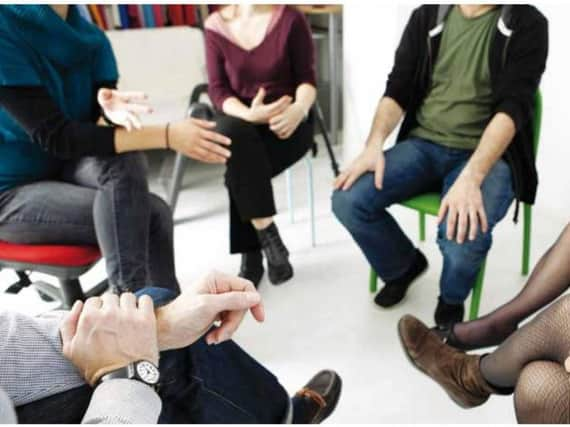EU support for recovery


Inclusive and long-term approaches are needed to deliver successful recovery treatments, according to leading campaigner Rick Kamphuis from the Netherlands.
Kamphuis, chair of the European Mutual Help Network for Alcohol-related Problems (EMNA), says many people can “fall into a black hole” once they leave specialist treatment centres for alcohol addiction.
He says: “We have to ‘redecorate’ recovery and start thinking about it in another way.
“Recovery for most alcoholics and drug addicts is a lifetime occupation, but with our ‘economy’ state of mind people often think after a four or five-month treatment people are cured.
“When we look at all the money and effort we put into educating people in a specific field [of study], it takes years and even then we let people walk along [with] craftsmen for a couple of years until they are more experienced themselves.
“In healthcare, however, people want quick and cheap results.”
Kamphuis, who works as a professional recovery and self-help peer at Tactus Verslavingszorg in the Netherlands, is set to discuss the topic at the 8th European Alcohol Policy conference entitled Enlightened Alcohol Policy for the 21st Century, organised by SHAAP (Scottish Action on Alcohol Health Problems) and Eurocare (European Alcohol Policy Alliance).
First Minister Nicola Sturgeon will open the conference, which takes place next month in Edinburgh.
The event will highlight issues surrounding justice, health, gender, youth, economics and recovery, and is aimed at stimulating debate and policies linked to a range of alcohol-related problems, as well as possible solutions.
Kamphuis, a former drug and alcohol dependent from Arnhem, has been in recovery since 2009, when he met his wife and began attending self-help groups. He has been a peer worker at Tactus since 2011.
The organisation aims to help both addicts and their loved ones via prevention clinics, healthcare and harm reduction, recovery groups and a range of social activities.
Tactus has a nationwide network throughout the Netherlands of former dependents who are putting their own experiences of addiction to good use by acting as role models and opening the doors to recovery for those still struggling with the illness.
More than 300 delegates are expected to attend next month’s conference, where they will learn about various approaches to recovery – clinical, functional, personal and societal. Kamphuis defines recovery as the individual being the “driver of life and not the passenger”.
He is also calling for more options and funds to be made available to ensure that individuals receive treatment which is as tailored as possible.
Recalling his own experience, Kamphuis says:“It was a one-size-fits-all approach and the client had to adjust to the interventions they were given, but I think we now need to look at how we, as addiction care[givers], adjust to the clients’ needs.
“We have to create safe ground for people who have been in clinical intervention for after they have lived in the clinic and returned home. Otherwise they can fall into a black hole.
“We have to arrange things for them to feel free space and learn how to cope with life in another way.”
There are good economic reasons for society to encourage alcohol recovery. In Scotland, government figures estimate that the cost of alcohol misuse to the nation each year is some £3.6 billion – or £900 for every adult living in the country.
Discussions will therefore cover the financial implications of recovery and Kamphuis says that they extend across education, employment, health and social care, as well as associated costs involved in dealing with the physical and mental wellbeing of addicts and their families.
Conference speakers will include Catherine Calderwood, the Chief Medical Officer for Scotland; Joe Fitzpatrick, Scottish Minister for Public Health; Alison Douglas, chief executive of Alcohol Focus Scotland; Carina Ferreira Borges, Programme Manager Alcohol and Illicit Drugs at the World Health Organisation; and Michele Cecchini, head of the public health team at the Organisation for Economic Co-operation and Development.
The 8th European Alcohol Policy conference will take place at the College of Physicians in Edinburgh on 20 and 21 November. To book a place, visit www.8eapc.eu